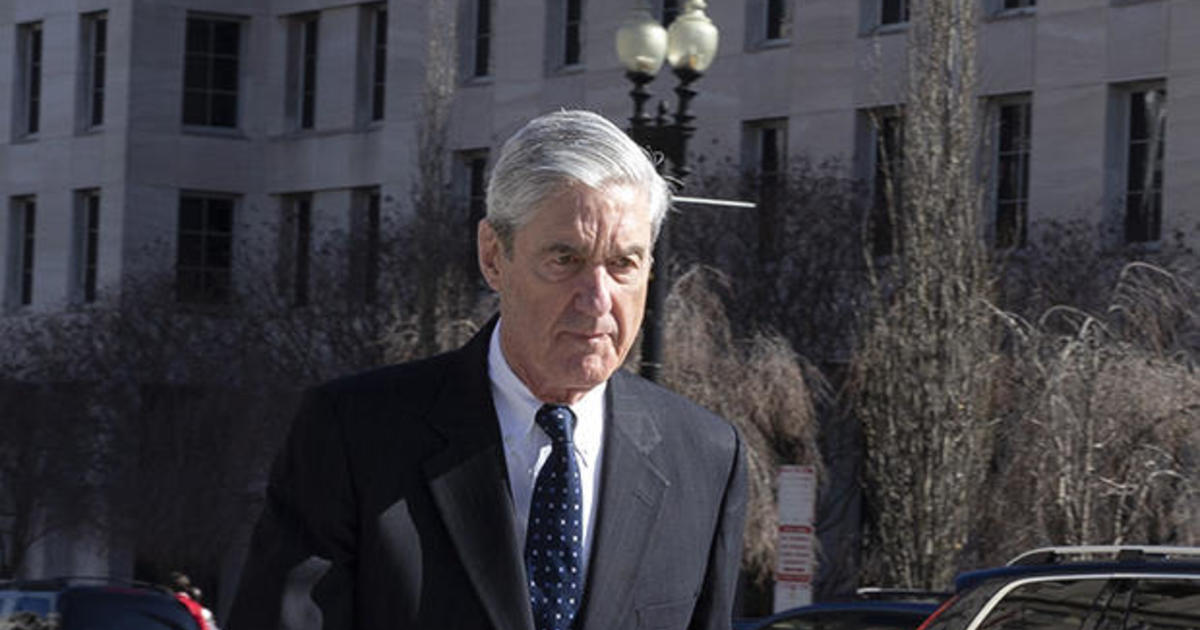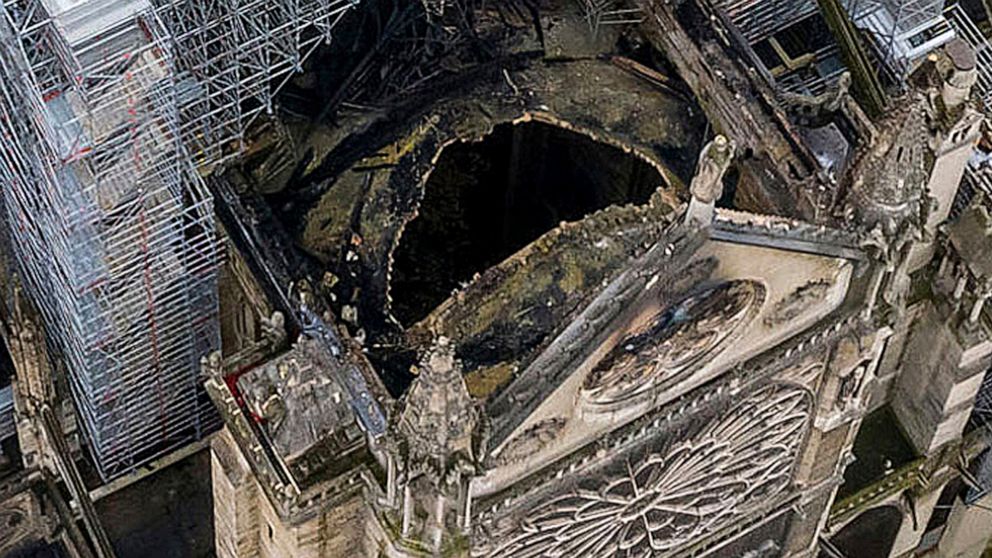
Attorney General William Barr is set to release the long-anticipated report by special counsel Robert Mueller on Russian interference in the 2016 election. Barr and Deputy Attorney General Rod Rosenstein will hold a press conference at 9:30 a.m. Thursday to discuss the report’s release.
Democratic members of Congress raised concerns on Wednesday about the timing of the release, blasting the Justice Department for preparing to release it only after Barr’s press conference. The report is expected to be delivered on CDs to Capitol Hill between 11 a.m. and noon, according to a senior Justice Department official. It will then be posted publicly on the special counsel’s website.
Barr released a four-page letter summarizing the main points of the report earlier this month, saying that Mueller had concluded that President Trump did not coordinate with Russian individuals to influence the 2016 campaign.
Barr also said Mueller had not made a determination as to whether Mr. Trump had obstructed justice, but Barr and Deputy Attorney General Rod Rosenstein concluded the president had not.
Democrats have criticized Barr and Rosenstein’s determination, and have called for the full, unredacted report to be released. House Judiciary Committee Chairman Jerry Nadler has said he will subpoena the report from the Justice Department if it is redacted.
Mr. Trump, who has not seen the report, has repeatedly claimed that the report has vindicated him completely. He has also referred to the investigation as a “hoax” and a “witch hunt.”
“No Collusion – No Obstruction!” the president tweeted Tuesday morning.
What you won’t see in the report
Barr told members of Congress he would make as much of the report public as possible, but would redact sections based on four criteria:
- Information from the grand jury
- Classified information
- Material related to ongoing investigations
- Any information which would “unduly infringe on the personal privacy and reputational interests of peripheral third parties.”
Grand jury information, which includes witness information, can be obtained in court. Some grand jury records in the Whitewater investigation into President Bill Clinton and an investigation into President Richard Nixon were released. However, those records were released after the House Judiciary Committee began impeachment proceedings.
House Judiciary Chairman Jerry Nadler has expressed wariness about impeaching Mr. Trump, and may argue in court that the materials can be obtained without formal impeachment proceedings.
Barr said during a House Appropriations subcommittee hearing that the report will be color-coded with accompanying “explanatory notes” describing the basis for each redaction.
Barr made waves in a hearing before a Senate Appropriations subcommittee by suggesting that “spying did occur” on the Trump campaign during the 2016 election, saying he will investigate the origins of the Mueller report.
“I am not saying that improper surveillance occurred. I’m saying that I am concerned about it and looking into it, that’s all,” Barr said. His testimony left Democrats to assume Barr is carrying the president’s water on this issue, as Mr. Trump seized upon the allegations his campaign had been surveilled.
Trump attorneys working on a counter-report
The president’s personal attorneys have been working on a counter-report to rebut Mueller’s findings. This counter-narrative has been in the works for months and they have continued to edit it this week. The length of the report has varied, although Trump attorney Rudy Giuliani said “they are trying to make it concise.”
Giuliani said Wednesday his team is confident the Mueller report “can be answered real simple.” They will emphasize that Mueller found no chargeable wrongdoing and there were no charges of collusion or obstruction against president or anyone else.
There is no indication the president’s legal team has seen the Mueller report, so this is based on publicly available information and what they know from working with their client in this investigation.
The White House is working separately from the president’s personal attorneys and are taking a more low-key approach. They will read the redacted report and issue a statement as they did with the four-page letter from Barr.
— Paula Reid
Democrats prepare for the release of the report
Nadler, the Democratic chairman of the House Judiciary Committee, has said Congress is “entitled to see all” of Mueller’s report, doubling down on his demand that the Justice Department provide his committee with the findings of the nearly two-year Russia investigation with no redactions.
“Congress has a right to the entire report with no redactions whatsoever so we can see what’s there,” Nadler said on “Face the Nation” earlier in April. “We’re entitled to see it because Congress represents the nation. And Congress has to take action on any of it. So we’re entitled to see all of it.”
Nadler said he would go to court to obtain secret grand jury testimony that might be included in the unredacted report.
“We would have to go the court to get the release of the grand jury information but that has happened successfully in every previous situation,” Nadler said. “And it’s not up to the attorney general to decide with respect to that or with respect to other material that he decides Congress can’t see.”
Members of other congressional committees have also called for greater information on the report.
House Intelligence Committee Chairman Adam Schiff, a Democrat, and GOP ranking member Devin Nunes came together in a rare bout of bipartisanship to demand “full visibility” into the findings, citing the probe’s counterintelligence origins and the committee’s own statutory oversight responsibilities.
In a letter dated March 27 and addressed to Barr, Rosenstein and FBI Director Chris Wray, the committee leaders asked to be provided with “all materials, regardless of form and classification, obtained or produced by the Special Counsel’s Office in the course of the investigation.”
Schiff and Nunes said those materials should include records related to the investigation’s scope and subjects as well as any “raw reporting” related to intelligence or counterintelligence matters. They also requested a briefing for the full committee from Mueller himself, alongside members of his senior team and relevant law enforcement and national security officials.
— Olivia Gazis and Camilo Montoya-Galvez
Republicans plan to react to the report
The president’s allies have also been preparing for the release of the report. One House GOP aide says their office is looking for details in the obstruction section of Mueller’s report that Democrats may try to “harp on.” GOP aides will play “devil’s advocate” as they comb through the report to know how best to respond to Democratic attacks.
“We really expect Democrats to harp on the redactions” to imply there was something “nefarious” or “damning” redacted, and try to respond to that, the GOP aide said.
A second House GOP aide expressed concern about the unknowns of the “palace intrigue” that could be in the report, and said Thursday can only be perceived an upside for Democrats, since it doesn’t take 400 pages to say “no collusion, no obstruction.”
“The reality is that Barr’s letter said essentially, as understood by I think certainly Republicans and probably the American people, basically you said you know there was no collusion and there was essentially no obstruction,” the second GOP aide said. “So now we’ve got 400 pages to read on Thursday. And the reality is that it doesn’t take 400 pages to say no collusion, no obstruction. So I think, I think Thursday’s going to be a day where you’ll see the Democrats making a lot of molehills into mountains. They’re going to be looking for anything in there, and certainly I think Thursday’s kind of all upside for them because in their estimation anything that doesn’t say no collusion, no obstruction is probably good news.”
— Kathryn Watson

